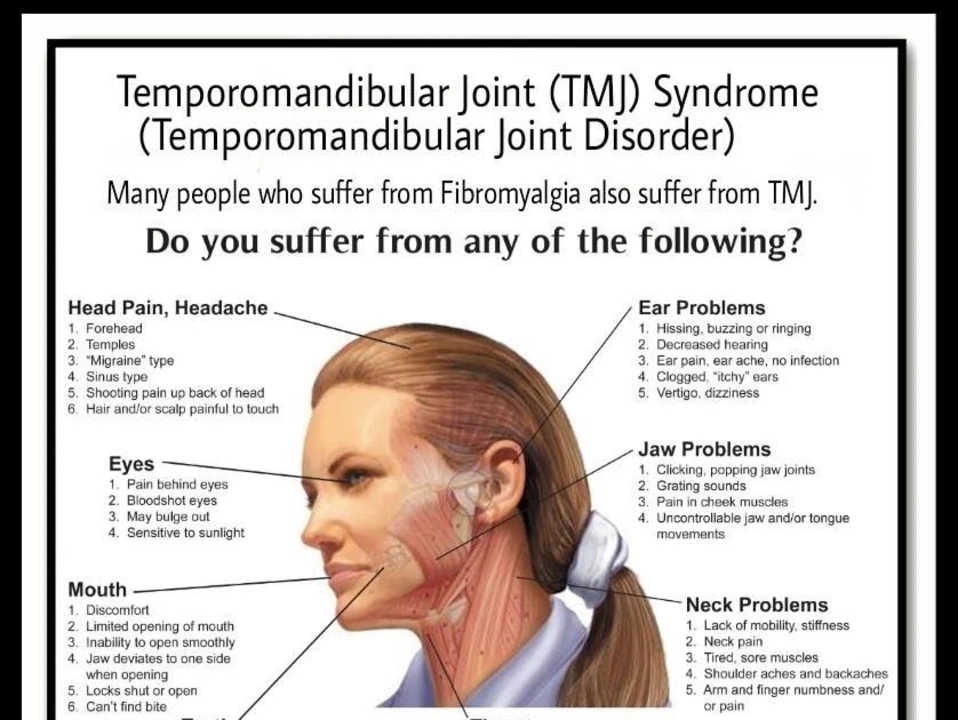Introduction: Understanding Vertigo and TMJ Disorders
As someone who has experienced both vertigo and Temporomandibular Joint (TMJ) disorders, I understand how debilitating these conditions can be. It can be quite challenging to go about your daily activities while feeling dizzy or dealing with a painful jaw. Over time, I started noticing a pattern between my vertigo episodes and my TMJ flare-ups. This led me to research the connection between these two conditions. In this article, I will discuss the relationship between vertigo and TMJ disorders and provide helpful tips to manage these symptoms.
What is Vertigo?
Vertigo is a sensation of spinning or dizziness, usually caused by problems in the inner ear or the brain. It can be quite disabling, especially when it occurs suddenly and without warning. Symptoms of vertigo may include nausea, vomiting, difficulty walking, and balance problems. There are several different types of vertigo, but the most common form is benign paroxysmal positional vertigo (BPPV), which is caused by a disturbance in the inner ear.
What is a TMJ Disorder?
TMJ disorders refer to a group of conditions that affect the temporomandibular joint, which connects the jawbone to the skull. These disorders can cause pain and discomfort in the jaw, face, ears, and neck, as well as difficulty chewing, swallowing, and speaking. There are several possible causes of TMJ disorders, including injury, arthritis, teeth grinding, and stress.
How are Vertigo and TMJ Disorders Connected?
The connection between vertigo and TMJ disorders lies in the close proximity of the temporomandibular joint to the inner ear. The TMJ is located just in front of the ear, and when it becomes inflamed or dysfunctional, it can cause or exacerbate vertigo symptoms. This is because the inflammation can affect the balance center in the inner ear, leading to dizziness and imbalance.
The Role of the Trigeminal Nerve
Another important factor in the connection between vertigo and TMJ disorders is the trigeminal nerve, which provides sensation to the face and controls the muscles involved in chewing. The trigeminal nerve has three branches, one of which runs very close to the inner ear. When there is dysfunction or inflammation in the TMJ, it can irritate the trigeminal nerve, leading to vertigo symptoms. This is known as trigeminal-mediated vertigo.
Managing Vertigo and TMJ Disorders
Since vertigo and TMJ disorders are interconnected, managing one condition can often help alleviate the symptoms of the other. Here are some tips for managing both vertigo and TMJ disorders:
1. Seek Professional Help
If you suspect that you have vertigo or a TMJ disorder, it is important to consult with a healthcare professional for a proper diagnosis and treatment plan. This may involve seeing an ear, nose, and throat (ENT) specialist, a dentist, or a physical therapist who specializes in TMJ disorders.
2. Practice Good Posture
Maintaining proper posture can help alleviate the symptoms of both vertigo and TMJ disorders. Keep your head upright, your shoulders down and back, and your chin parallel to the floor. Avoid slouching or craning your neck forward, as this can place additional stress on the TMJ and exacerbate vertigo symptoms.
3. Adopt a Soft Diet
Eating soft foods can help alleviate the strain on the TMJ and reduce inflammation. Avoid hard, crunchy, or chewy foods that require a lot of jaw movement. Instead, opt for foods like yogurt, smoothies, mashed potatoes, and cooked vegetables.
4. Practice Stress Management Techniques
Stress can contribute to both vertigo and TMJ disorders, so it is important to practice stress management techniques. This can include deep breathing exercises, meditation, yoga, or engaging in hobbies that you find relaxing.
Conclusion
Both vertigo and TMJ disorders can significantly impact your quality of life, but understanding the connection between these two conditions can help you manage your symptoms more effectively. Remember to consult with a healthcare professional for a proper diagnosis and treatment plan, and consider implementing the strategies discussed in this article to help manage your symptoms. I hope that by sharing my own experiences and research, I can help others who are struggling with these conditions to find relief and improve their overall well-being.

